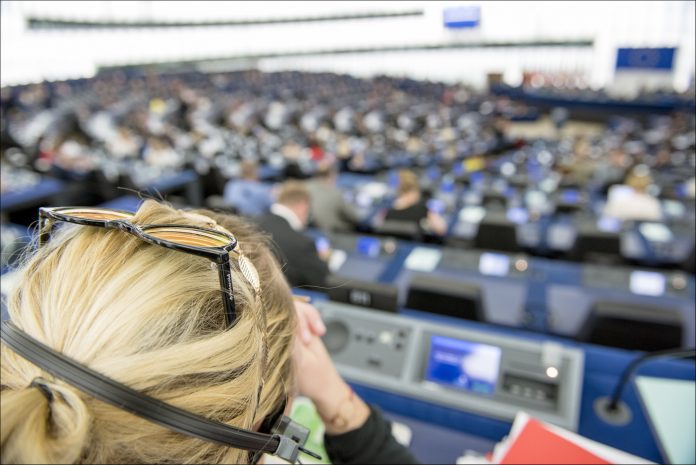The European Commission’s proposal for the post-2020 EU budget has been praised by some members of the European Parliament. Others have criticised it.
The news is good from the European People’s Party (EPP) Group. Its chairman Manfred Weber told a debate on the Multiannual Financial Framework on May 2 that the money that is being used in the EU budget is money well-invested. He described the Commission’s proposal as a “measured but ambitious budget” that is a good starting point for the discussions.
“For us it is clear that new tasks require new resources,” explained Weber. “The EU makes a difference in so many aspects of peoples’ lives. We have more and more tasks ahead of us, for example on defence, strengthening Frontex, and building a brighter future for young Europeans. The fact that the European Commission has integrated our proposal of free Interrail tickets for 18 year-olds in its budget planning is a sign that it is taking young people seriously.”
The Progressive Alliance of Socialists and Democrats (S&D) Group, however, expressed concern. The group said the budget proposal marks some very timid steps forward and is missing the necessary courage and foresight to face the current and the new challenges ahead for the EU.
“Europe needs to embark on a new path of economic and social development, one of sustainable equality and well-being for all,” said S&D Group president, Udo Bullmann. “The Commission’s proposal for the next Multiannual Financial Framework seems not quite fit for the job. As the S&D Group, we have been advocating an MFF that is aligned with the United Nations Sustainable Development Goals, and supports the progressive transformation of the European society.”
According to S&D Group vice-president, Isabelle Thomas, the proposal is not serious because the amounts proposed would lead to unprecedented budget cuts. “With 1.11% of the EU27’s gross national income (GNI), this proposal is an outrageous €219bn less than what the EP demanded. Such a proposal would be unable to live up to our citizens’ expectations or deliver significant actions on youth unemployment, sustainable development, climate change, the social pillar, agriculture, cohesion and international and humanitarian aids.”
As for the European Conservatives and Reformists (ECR) Group, the proposal to increase the EU’s budget despite Brexit is disappointing.
“From new EU taxes to common defence funds to policing ‘values’ this budget is all about more centralisation and more Brussels meddling,” said ECR spokesman on the budget Bernd Koemel MEP. “EU taxes that replace money currently collected and spent by member states isn’t new money. It’s robbing Peter to pay Paul. Countries will end up with a shortfall, forcing them to choose between raising taxes to make up for it or cutting spending. It’s a simple as that and once this door is opened, it will never close.”
Left-wing MEPs also criticised the plan. The European United Left – Nordic Green Left (GUE/NGL) Group criticised the budget’s emphasis on militarisation at the expense of policies with real benefits.
“It is scandalous that the Commission is increasing spending to bolster ‘Fortress Europe’ and harden external borders at a time when traditional programmes are being cut,” said Liadh Ní Riada (Sinn Féin, Ireland). “One of the founding principles of this union are the promotion of peace and stability, so what kind of message does this send?”
“At a time of tentative economic recovery, a recovery that many in Europe are yet to benefit from, the Commission has proposed cuts to both the Common Agricultural Policy (CAP) and Cohesion policy. This is just not good enough,” she added.
As for the European Greens, the party’s co-chairs Monica Frassoni and Reinhard Bütikofer said: “Of course, Greens will also contribute to the discussion over the Commission’s proposal. We will call, for instance, to emphasise the need to green the budget much more ambitiously. As we seek to meet our commitments as part of the Paris Agreement, we need to be ready to respond to unforeseen consequences from climate change.”

